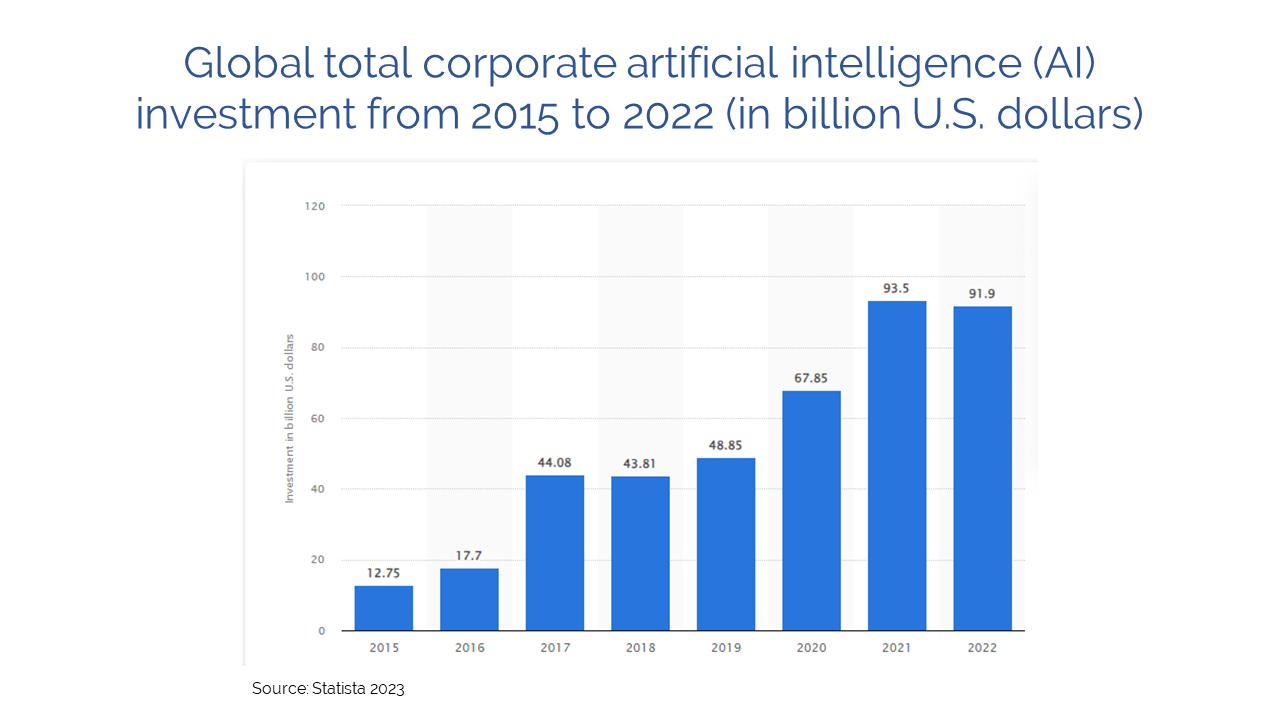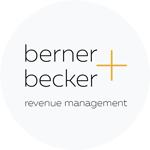Maximizing Profits and Guest Satisfaction: The Future of Revenue Management with AI Integration
This is an article co-written by Chat GPT & Pontus Berner
Introduction
The buzzword of the year is AI. According to Trootech, the present AI market stand October 2023 is worth over 300 billion EUR, and AI has become the number one priority for 83% of businesses around the globe. Thus, this article delves into the integration of AI in the future of revenue management and its significance for hotels, highlighting what hoteliers should be aware of.
Revenue management has always been a critical aspect of the hospitality and travel industry, it involves optimizing pricing and distribution strategies to maximize revenue, considering various factors such as demand, competition, and customer preferences. In recent years, especially during 2023, for the hotel industry, the application of AI in revenue management and Revenue Management Systems (RMS) is a crucial task. The future success lies in an effective implementation of AI technology in conjunction with the strategic work of the human mind.

The Traditional Revenue Management Approach
Before the advent of AI, revenue management largely relied on historical data and manual analysis. Revenue managers would use spreadsheets and basic forecasting tools to make pricing decisions, often overlooking the complexity of the market dynamics. While a great level of success can be achieved with this traditional approach, it is limited by the human capacity to process and analyse vast datasets, adapt swiftly to real-time changes, and account for all various factors influencing demand.
The Role of AI in Revenue Management
AI, particularly machine learning, as in many other fields, brings a paradigm shift in revenue management. Some ways in which AI is transforming the industry are:
- Data Analysis and Predictive Modelling: AI algorithms can process massive volumes of data, both historical and real-time, to identify trends and patterns that humans might overlook. This enables more accurate demand forecasting, allowing businesses to set optimal prices and manage inventory effectively.
- Dynamic Pricing: If you are not using it yet, AI will surely propel the implementation of dynamic pricing and thus allow businesses to adjust their prices in real-time based on factors like demand, competition, and seasonality. This is one of the most crucial keys to unlocking a hotel’s true potential. It not only maximizes revenue but also enhances competitiveness by offering the right price to each customer.
- Inventory Management: AI helps businesses manage their inventory efficiently by predicting demand and optimizing allocation. This minimizes the risk of overbooking or underutilizing resources, improving overall operational efficiency.
- Market Insights: AI can analyse data from various sources, including social media and online reviews, to gain insights into customer sentiment and preferences. This information can be used to refine marketing strategies and improve customer experience.
Benefits of AI Integration
The integration of AI into revenue management offers several significant advantages for hotels and revenue managers. AI can make precise pricing decisions that maximize revenue. By analysing demand patterns and adjusting prices accordingly, businesses can capture additional revenue that would have otherwise been left on the table. A big focus is always on increasing the ADR in revenue management, and when done successfully, it can go straight down to the profit line.
Improved efficiency and automation of routine tasks and real-time decision-making allow revenue managers to focus on more strategic activities. This definitely saves time and can lead to cost savings and increased productivity.
Also, it can enhance the customer experience. Personalized pricing and offers cater to individual customer preferences, increasing customer satisfaction and loyalty. As we know, happy customers are more likely to return and recommend the business to others.
Challenges and Considerations
While AI integration in revenue management offers numerous benefits, there are some challenges and considerations to keep in mind:
Data Quality: AI algorithms rely on high-quality data for accurate predictions. Businesses must ensure data cleanliness and completeness for optimal results. The work starts at the operational level, by using technology correctly and making sure the right systems for your hotel are in place and set up well. It all starts with the PMS!
Investment Costs: Implementing AI systems can be expensive, requiring initial investments in technology, training, and ongoing maintenance. However, as revenue management per se, it is a revenue-generating investment rather than a pure cost. Typically, a hotel can reach a 15% revenue growth when implementing revenue management, and that 15% typically makes it worth the cost of a revenue manager and investing in the right technology including AI.
- Ethical Concerns: Personalization based on AI can raise privacy concerns. Businesses must use customer data responsibly and in compliance with relevant regulations. For Germany, we recommend to follow DEHOGA guidelines.
- Not covering all parts of a hotel’s business: Solely relying on your AI pricing can be damaging. Especially if your set-up of rate codes, mapping, segmentation etc is not done correctly. Furthermore, many Revenue Management Systems tend to focus on the public business and don’t know how to consider groups, corporate and leisure contracts etc.
- Strategic work: AI doesn’t take care of your strategy. When it comes to many decisions, such as distribution, promotion planning, target setting, and accounting for big changes in your hotel or market, it is crucial to guide the AI-pricing systems.
- The choice of the right RMS: It is also important to choose the right AI system for your hotel. Some RMSs have true AI learning algorithms, but others don’t. An AI algorithm is designed to process and learn from data to make predictions and decisions based on that learning. As it collects data over time, it can update and improve its predictions. In other words, it’s self-learning.
Conclusion
AI is reshaping not only the hospitality industry but the world. In Revenue Management, the ability to analyse vast datasets, make real-time pricing decisions, and personalize offers is revolutionizing how hotels optimize their revenue and enhance customer satisfaction. By leveraging AI, hotels can maximize profits, gain a competitive edge, and create a more efficient and customer-centric approach to revenue management.
The future of successful revenue management undoubtedly lies in the adaptation of AI and combining it with the human strategic mind. Thus, ensuring the correct execution and keeping a holistic focus on the business. As AI continues to advance, we can expect even more sophisticated and effective revenue management to emerge, driving the industry to new heights of success.




